Coral may spread north, University of Exeter study finds
- Published
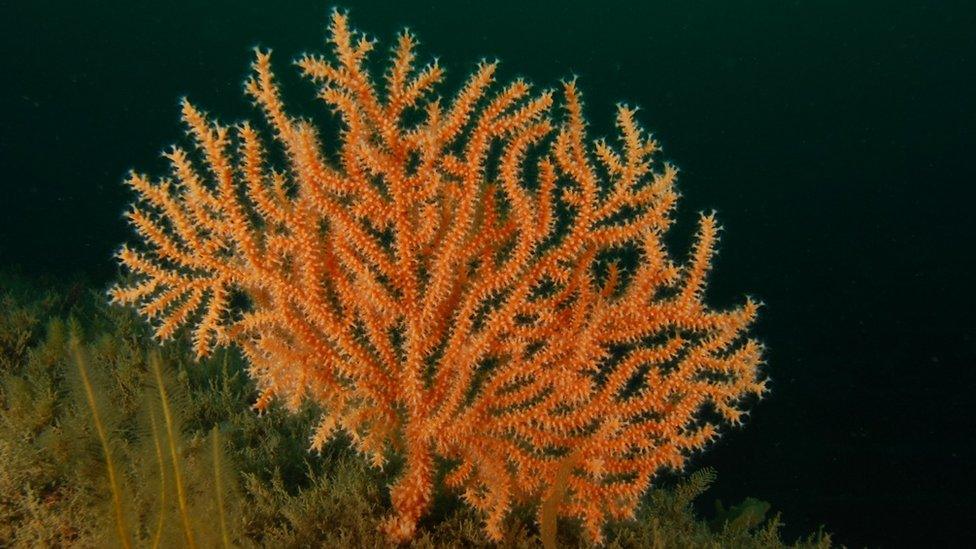
Dr Jamie Stevens said while these species are expected to expand in the short term the long term impact of global warming on them was unclear
A "vulnerable" coral species found in UK waters may be able to find new habitats due to the climate change, research has found.
The pink sea fan lives in shallow waters from the western Mediterranean to north-west Ireland and the south-west of England and Wales.
The University of Exeter study found the species is likely to spread northwards as global temperatures rise.
The results could be used to identify priority areas to protect the coral.
The species is classified as "vulnerable" worldwide, external and is listed as a species of principal importance in England and Wales, external.
Dr Tom Jenkins, from the University of Exeter, said: "Our future predictions... revealed an increase in suitable habitat for pink sea fans to the north of its current range - so the species could spread northwards by 2100.
"We also found that existing habitat across south-west Britain, the Channel Islands and north-west France is predicted to remain suitable for this species over the next 60-80 years."

Pink sea fan
Although known as the pink sea fan, the horny coral can vary in colour from white to orange to deep pink
Each is a colony of individual animals, or polyps, that share a hard skeleton
Most grow to a height of about 25cm (10in), but some have been recorded at 50cm (20in) tall and 1m (40in) across
Pink sea fans grow incredibly slowly - only 1cm (4in) a year - so the largest sea fans may be more than 50 years old
Found in shallow waters between 10-50m (30-160ft) deep
They provide a home to other sea creatures
Conservationists classify them as nationally scarce and globally vulnerable
Source: The Wildlife Trusts

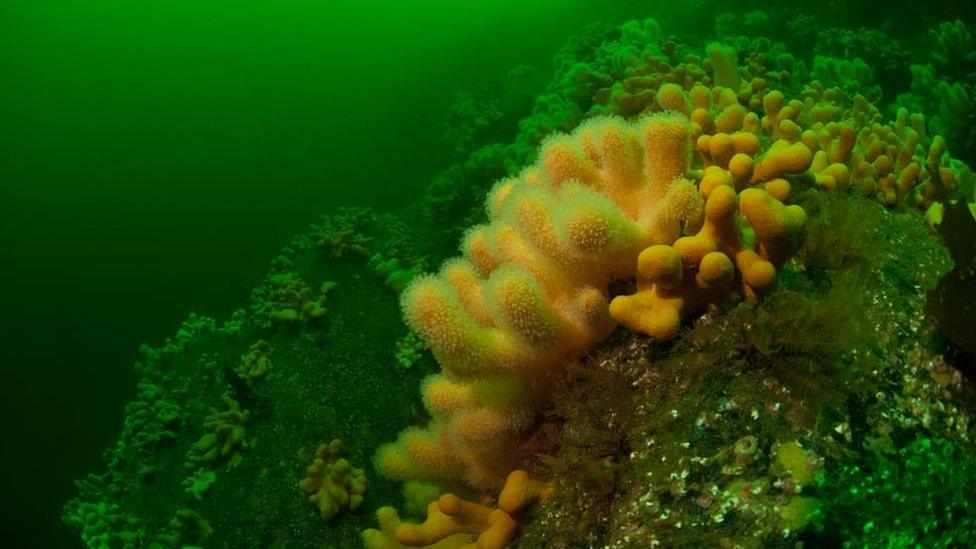
Dead man's fingers are expected to shift further north as temperatures rise
The study also looked at another soft coral species called dead man's fingers, which it predicted would lose habitat in the southern part of the study area and see a similar increase in its northern range.
Those behind the study said pink sea fans were ecologically important because they add complexity to reef systems and support marine biodiversity.
Dr Jamie Stevens, also from the University of Exeter, said: "This research highlights the complex effects of climate change on marine ecosystems, in which the ranges of some species respond to warming by shifting pole-wards.
"In a rapidly changing mosaic of habitats, some species - typically those favouring warmer conditions - may come out as short-term 'winners'.
"How long these species can continue to expand and benefit in the face of accelerated warming remains to be seen."

Follow BBC News South West on Twitter, external, Facebook, external and Instagram, external. Send your story ideas to spotlight@bbc.co.uk, external.
Related topics
- Published24 April 2022
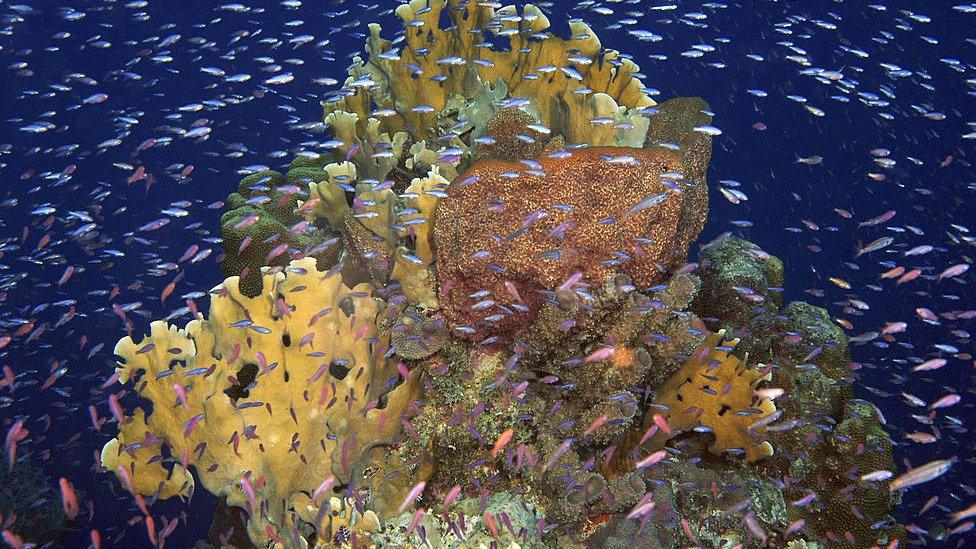
- Published14 April 2022
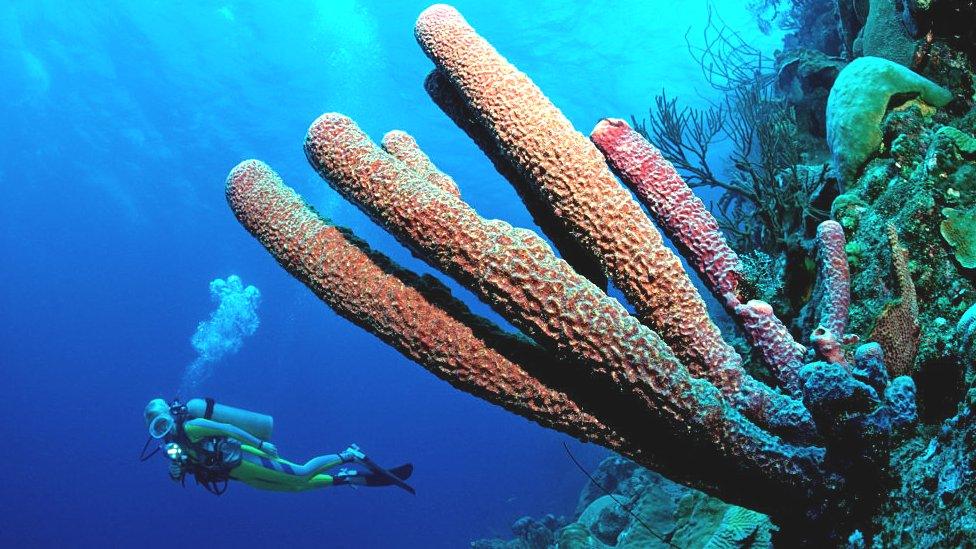
- Published20 January 2022
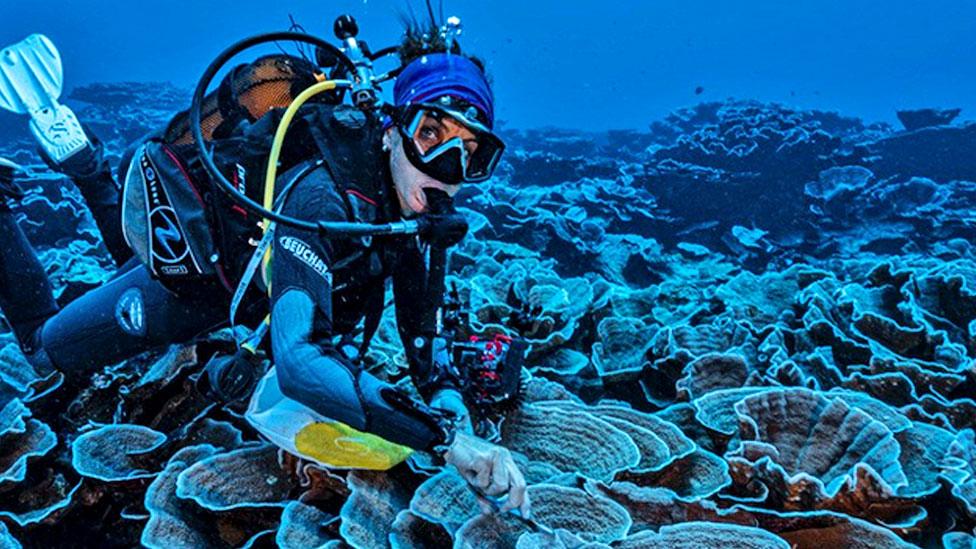
- Published12 January 2022